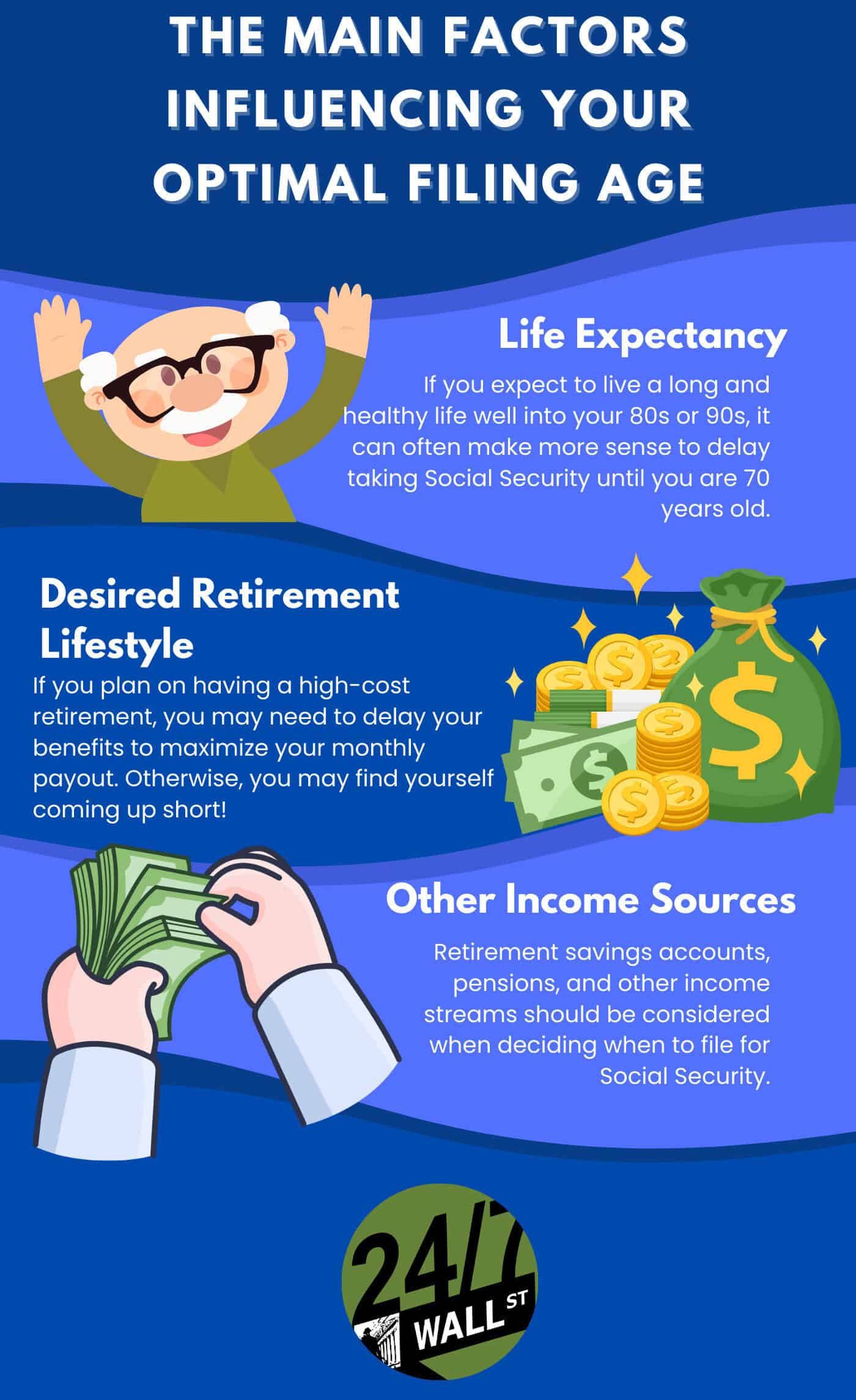Personal Finance
Dave Ramsey says to take Social Security at 62 - here's when that's actually brilliant advice

Published:
Last Updated:

I don’t always agree with the advice that Dave Ramsey gives on his show. Indeed, some of the complex financial scenarios don’t have a single magic solution that a financial pro can offer. Though some opinions and viewpoints are sure to be sprinkled here and there, it’s okay not to agree with the pundit on everything. That said, there’s this one potentially controversial Ramsey viewpoint that I wholeheartedly agree with, and that’s taking social security at 62, the minimum age one can opt-in.
Of course, delayed gratification is almost always a good thing. By foregoing social security at 62, you’ll get a bigger cash stream coming at you starting at a later date. That said, the utility (enjoyment or satisfaction) you’ll get in your early 60s from a lesser amount may just be a heck of a lot higher than what you’d receive in your late 60s.

Undoubtedly, if you’re in good health, it makes sense to take the money sooner rather than later, especially since unforeseen health conditions have a higher chance of hitting at a more advanced age. If you can travel and enjoy a slew of activities today in your early 60s, sometimes it’s best to take the money and enjoy rather than take more later.
In many ways, the time value of money (TVM) may be higher than you think by the time you reach 62 years old. Of course, the decision to take social security earlier is very personal and your mileage is going to vary based on your specific circumstances. Many of today’s 62-year-olds can expect to live well into their late 80s or even their 90s. Further, if you can stay in good health as you age, you may just find it the right decision to delay social security payments for a while longer.
Either way, you have some degree of optionality. You can take it or leave it in any given year based on your needs, wants, or sudden changes in circumstances.
Now, let’s get back to Ramsey and why he thinks it’s a smart move to take social security at 62. In this piece, we’ll lay out a few points that support the case for taking the money sooner rather than later.
| Claiming Age | Monthly Benefit (as % of FRA Benefit) | Pros | Cons |
|---|---|---|---|
| 62 | 70% | – Receive benefits early – Can use income if retiring early |
– Reduced monthly benefit for life – May not maximize lifetime benefits if you live long |
| FRA (66-67 depending on birth year) | 100% | – Full monthly benefit – No reduction for early claiming |
– No early access to funds – Lower than benefits at age 70 |
| 70 | 124% | – Maximized monthly benefit – Ideal for those with longer life expectancy |
– Delay in receiving benefits – May not be optimal for those with shorter life expectancy |
Even if you don’t need extra cash today to support your lifestyle, you can take the cash today and invest it in a way that may just bag you a greater return over the long haul. Even if you expect to live to 100, taking the cash at 62 and investing it wisely can not only literally pay huge dividends, but it may just put you on the fast track to a more comfortable retirement.
Additionally, having the cash on hand allows you greater flexibility to change up the budget should unforeseen financial costs hit from out of nowhere. Ramsey thinks retirees should factor in flexibility as a part of their decision regarding when they start taking social security payments.
Either way, having some extra cash to invest in solid blue chips, I believe, makes a lot of sense, especially if you have a chance to deploy the funds on bargains after sharp market sell-offs. Just think of the opportunity that extra cash would allow you if a 2020 stock market crash and ensuing V-shaped recovery were to happen again.
Even if you’re not looking to buy stocks in times of extreme undervaluation, stashing the funds in a simple, low-cost index fund may suffice. Ramsey thinks that early social security payments invested in a “good mutual fund” could score better results than someone who waits until 70 before collecting.
In short, Ramsey’s in the camp of taking social security early. If you value investment opportunities and financial flexibility, and, perhaps most importantly, you can stomach the risk that comes with investing your social security funds in markets, perhaps taking social security at 62 makes sense for you.
As with most topics in personal finance, there is no right or one-size-fits-all solution. So, don’t take the advice of Dave Ramsey without putting on your own homework and meeting with a financial advisor who can better grasp your situation, concerns, and ambitions.
If you want more cash to invest through your 60s and value flexibility, maybe Ramsey’s advice of taking social security at 62 is one of the most brilliant pieces of advice he’s given!
Thank you for reading! Have some feedback for us?
Contact the 24/7 Wall St. editorial team.